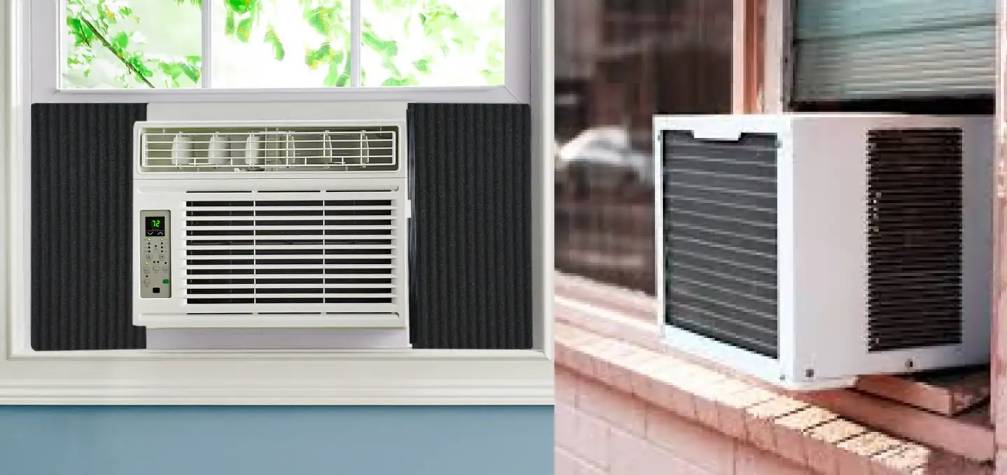Efficient Cooling: Choosing the Right Windows AC Unit
5 min read
06 Jul 2025
When the sweltering heat of summer arrives, a reliable air conditioning unit becomes a lifesaver. Window air conditioners are a popular choice for cooling individual rooms or small spaces. Choosing the right window AC unit can make a significant difference in energy efficiency, comfort, and cost savings. In this guide, we'll explore key factors to consider when selecting the perfect window AC unit for your needs.
1. Cooling Capacity: Matching the BTU
The cooling capacity of a window AC unit is measured in British Thermal Units (BTUs). To effectively cool a room, you need to choose an AC unit with the right BTU rating. Here's a general guideline:

5,000 to 7,000 BTUs: Suitable for cooling small rooms, such as bedrooms or offices.
8,000 to 12,000 BTUs: Ideal for medium-sized spaces like living rooms or larger bedrooms.
13,000 to 24,000 BTUs: Suitable for larger rooms or open-concept living areas.
Selecting an AC unit with the appropriate BTU rating ensures efficient cooling without unnecessary energy consumption.
2. Energy Efficiency: Look for the Energy Star Label
Energy efficiency is a crucial consideration, both for cost savings and environmental reasons. Look for window AC units that have earned the Energy Star label. These units meet stringent energy efficiency guidelines set by the U.S. Environmental Protection Agency (EPA). Energy-efficient models consume less electricity, reducing your energy bills and carbon footprint.
3. Room Size and Layout: Consider Airflow and Placement
The layout of your room and the placement of the window AC unit can significantly impact its performance. Ensure that the unit is installed in a window where it can distribute cool air evenly throughout the room. Avoid placing it near obstructions like curtains or furniture, as these can hinder airflow and reduce efficiency. Additionally, if you have a room with high ceilings or an open layout, you may need a higher BTU unit to compensate for the extra space.
4. Noise Level: Opt for Quiet Operation
No one wants to be disturbed by a noisy air conditioner. Check the decibel (dB) rating of the window AC unit to assess its noise level. Quieter models are typically preferred, especially if the unit will be installed in a bedroom or a quiet workspace. Look for units designed with noise-reducing features, such as variable fan speeds and insulated cabinets.
5. Installation and Maintenance: Seek User-Friendly Options
Ease of installation and maintenance is another crucial factor to consider. Some window AC units come with user-friendly installation kits, while others may require professional installation. Look for units with features like slide-out chassis for easy access during cleaning and filter replacement. Regular maintenance, such as cleaning or replacing filters, is essential for optimal performance and longevity.
6. Additional Features: Enhancing Convenience
Modern window AC units offer a range of additional features to enhance convenience and comfort:
Remote Control: Allows you to adjust settings from across the room.
Programmable Thermostats: Enable you to set temperature and fan speed preferences.
Sleep Mode: Adjusts settings for quieter and energy-efficient nighttime operation.
Wi-Fi Connectivity: Allows you to control the unit remotely via a smartphone app.
Dehumidification: Helps reduce indoor humidity levels for added comfort.
Consider which features align with your preferences and lifestyle when choosing a window AC unit.
7. Energy-Saving Tips: Maximize Efficiency
To maximize the efficiency of your window AC unit and minimize energy consumption, follow these energy-saving tips:
Seal Gaps: Ensure a tight seal around the unit to prevent warm air from entering and cool air from escaping.
Use Curtains or Blinds: Keep curtains or blinds closed during the hottest part of the day to block out direct sunlight.
Set Temperature Wisely: Avoid setting the thermostat too low; every degree lower increases energy usage.
Regular Maintenance: Clean or replace filters as recommended by the manufacturer for optimal airflow.
Proper Sizing: Use the right-sized unit for your room to prevent overworking the AC and wasting energy.
8. Cost Considerations: Balance Budget and Efficiency
Window AC units come in a range of price points, with more energy-efficient models typically costing more upfront. While it may be tempting to choose the cheapest option, consider the long-term savings on energy bills and the durability of the unit. Investing in a higher-quality, energy-efficient AC unit can pay off in the form of lower operating costs and a longer lifespan.
Conclusion
Choosing the right window AC unit is essential for efficient cooling, comfort, and energy savings. Pay attention to factors such as cooling capacity, energy efficiency, room layout, noise level, and additional features when making your selection. Proper installation, regular maintenance, and energy-saving practices will further enhance the performance and longevity of your window AC unit. With the right choice and care, you can beat the heat and enjoy a comfortable and cool indoor environment during the hottest months of the year.
More Articles

Steve Harvey Addresses Cheating Rumors: A Resolute Stand Against Gossip and a Focus on Positivity
3 min read | 18 Jun 2025

Jennifer Coolidge: A Captivating Journey Through 'The White Lotus' Actress's Enigmatic Charm in Photos
3 min read | 17 Jun 2025

Unveiling Adam Woolard: 5 Key Insights into Hannah Brown's Fiancé and Their Genuine Connection
5 min read | 16 Jun 2025